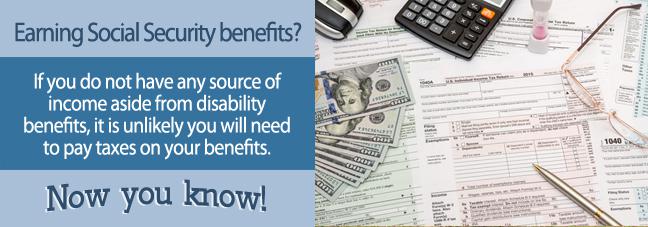Disability benefits are offered through the Social Security Administration (SSA) to help those who are unable to work and earn an income due to a disabling medical condition.
Further Reading: What Conditions Qualify For Disability?
When it comes to filing your annual taxes with the IRS while receiving disability benefits, there are certain factors to consider that may affect the process. These factors are discussed below.
Gross Income and Combined Income
Disability benefits are excluded from being calculated as gross income. Instead, your benefits must be calculated into your combined income, which the IRS looks at to determine if you need to pay taxes on them.
People who do not receive disability benefits calculate only their adjusted gross income, which includes any wages and other investments. On the other hand, disability benefit recipients must calculate their combined income, which includes their adjusted gross income, nontaxable interest, and benefits. This amount will determine if your benefits are taxed, as well as by how much.

How to File Taxes when Receiving Benefits
The first task for filing taxes while receiving disability benefits is to determine if your income exceeds the IRS income limits. These limits include:
- If over $25,000 but less than $34,000 as an individual or over $32,000 but less than $44,000 when filing jointly, then fifty percent of your disability benefits are taxable.
- If over $34,000 as an individual or over $44,000 jointly, then eighty-five percent of your disability benefits are taxable.
Also note that if you received a lump sum of disability back payments from the SSA, you do not need to claim that entire amount of money on your taxes for the current year. This is because the money represents years past and it may wrongfully affect your current taxes.
Each year, the SSA will send you a form called the SSA-1099. You will use this form when determining how much disability income to claim on your taxes.
Filing for a Child
If your child receives disability benefits on behalf of yourself or a spouse, it is unlikely that it will affect their taxes too much, but you should still be careful to include the correct information on their forms.
There are certain income limits for a child before they even have to file taxes at all, although they may still want to file them anyways.
The disability benefits for your child will only be taxable if the total benefit amount allotted to them (if there are other children, for instance) plus their combined income for the year exceeds the limits that are listed above. This means that a child would have to make a combined $25,000 in disability benefits and wages, which combined with child labor laws, is highly unlikely.
Getting Help
If you are having trouble understanding how much of your disability benefits are taxable, or if your income for the year will affect your taxes, consider talking to a tax professional or a disability advocate. A professional can help you file all of your necessary forms and make sure your disability income is claimed correctly.